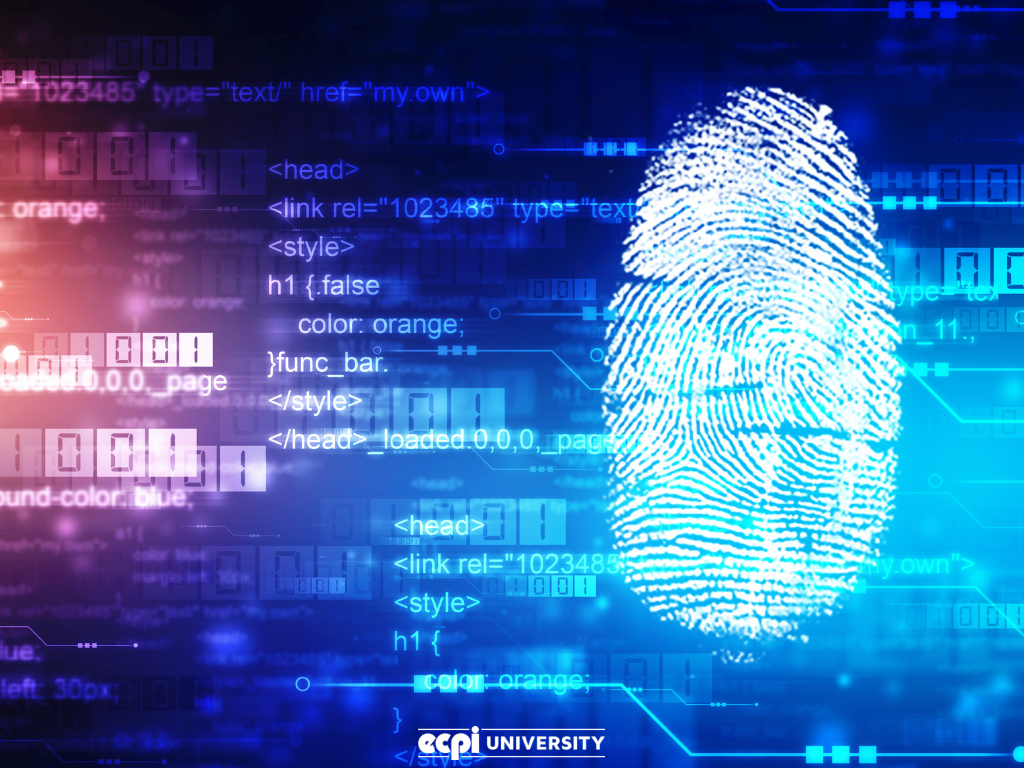
What is Digital Forensics in Cyber Security?
Sometimes it's a single keystroke that helps investigators catch the criminals.
These days, cyber criminals seem to be everywhere. They lurk in the darkest corners of the internet, defrauding people, hacking, stealing, and hiding from authorities with virtual anonymity. According to Wired, cyber criminals are wreaking havoc by unleashing ransomware attacks, stealing data, even disrupting day-to-day government operations.
And the problem is only getting bigger. According to a report published by Accenture, the number of cyber security breaches increased by 11% from 2017 to 2018. The cost of such breaches is astronomical--about $600 billion worldwide, according to the Economic Impact of Cybercrime report.
That's the bad news.
The good news is companies and government agencies are getting better at combating cyber criminals, finding them, and bringing them to justice. And they're using digital forensics to do it.
Here's a look at the industry, where the jobs are, and what it takes to succeed.
Digital Forensics in Cyber Security, Defined
People who work with digital forensics in cyber security are on the front lines in the fight against cybercrime. They're the people who collect, process, preserve, and analyze computer-related evidence.
They help identify network vulnerabilities and then develop ways to mitigate them. They go deep inside networks, computers, and smartphones in search of evidence of criminal activity. And they run counterintelligence against hackers, criminals, and others with nefarious intensions.
And they use scientific investigatory techniques to do it.
Where Digital Forensics in Cyber Security is Used
These days, anyone who uses the internet benefits from digital forensics in cyber security. That's because any company that collects data from internet users employs people who fight and investigate cybercrime.
Agencies and organizations have to be hyper-vigilant with the data they collect and protect, so they are constantly testing their systems, looking for vulnerabilities, and aggressively pursuing the people who hack into networks in order to commit crimes.
Facebook, Twitter, Instagram, Homeland Security, the FBI, Target Corp., the military, local and state law enforcement, and nearly every bank uses digital forensics in cyber security to protect people using the internet.
What Skills are Needed for Digital Forensics in Cyber Security
As you can imagine, not just anyone with a laptop and internet access can be a digital forensics professional. It takes a lot of knowledge and plenty of skills, including:
- Deep understanding of computers, technology across a broad spectrum, and cybersecurity principles and practices
- Working knowledge of computers, networks, and coding
- In-depth investigative abilities
- Critical-thinking skills and analytical talent
- The ability to effectively communicate and work with a wide range of people
What makes the job so interesting is that sometimes the evidence is easily accessible, but other times it's hidden deep within the computer or network. Often, it's been deleted by the suspect. It's the job of the professionals to use their knowledge and skills to find the evidence, where ever it may be hiding.
And sometimes it comes down to finding the data that's been hidden with a single keystroke.
How Digital Forensics in Cyber Security Makes a Difference
The field of digital forensics in cyber security is exciting because it makes a tangible difference in the lives of people across the country and around the world.
The professionals who work in this industry have helped catch people dealing in illegal pornography. They have helped bring killers to justice. They've tracked terrorists, located missing people, and found otherwise ordinary employees who were stealing millions of dollars.
In fact, the field is so important that it actually spawned its very own television show. Back in 2015 and 2016, CBS produced CSI: Cyber, which helped shed light on how the industry helps solve crimes.
Breaking into the Field
As you might imagine, the proliferation of technology has created a groundswell of people who have the skills and knowledge to hack organization's cyber security defenses. To combat the hackers, companies turn to ethical hackers and cyber security specialists who work to prevent and fend off cyber attacks.
One of the best ways to do that is through school. Earning a degree can reinforce the principles and practices used in the profession, and provide valuable hands-on experience.
Ready to Get Started?
If you are ready to join this exciting field and want to earn a Bachelor of Science in Criminal Justice with a Concentration in Digital Forensics, ECPI University offers this degree at an accelerated pace. For more information, connect with a helpful admissions counselor today.
It could be the Best Decision You Ever Make!
DISCLAIMER – ECPI University makes no claim, warranty, or guarantee as to actual employability or earning potential to current, past or future students or graduates of any educational program we offer. The ECPI University website is published for informational purposes only. Every effort is made to ensure the accuracy of information contained on the ECPI.edu domain; however, no warranty of accuracy is made. No contractual rights, either expressed or implied, are created by its content.
For more information about ECPI University or any of our programs click here: http://www.ecpi.edu/.



